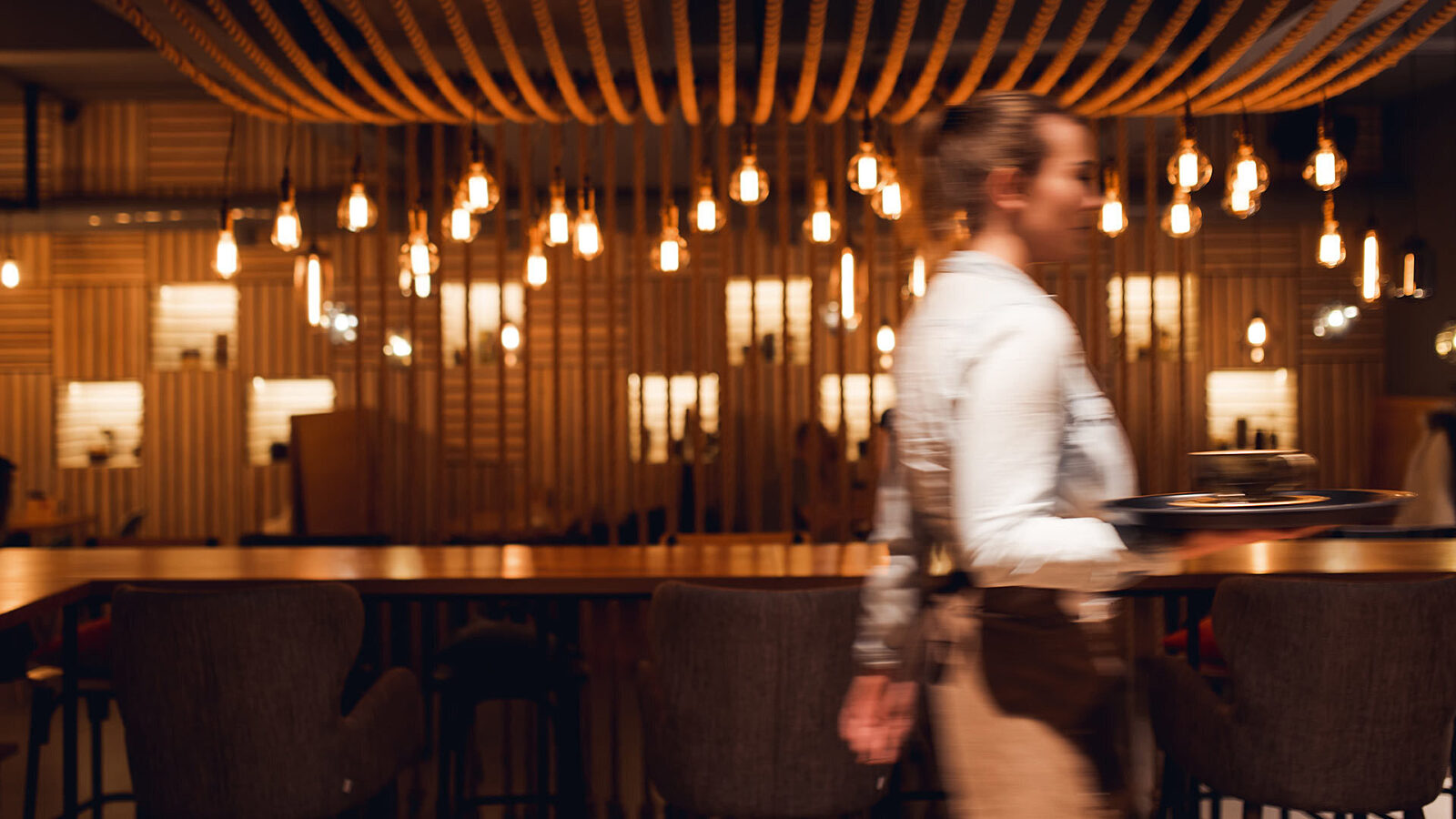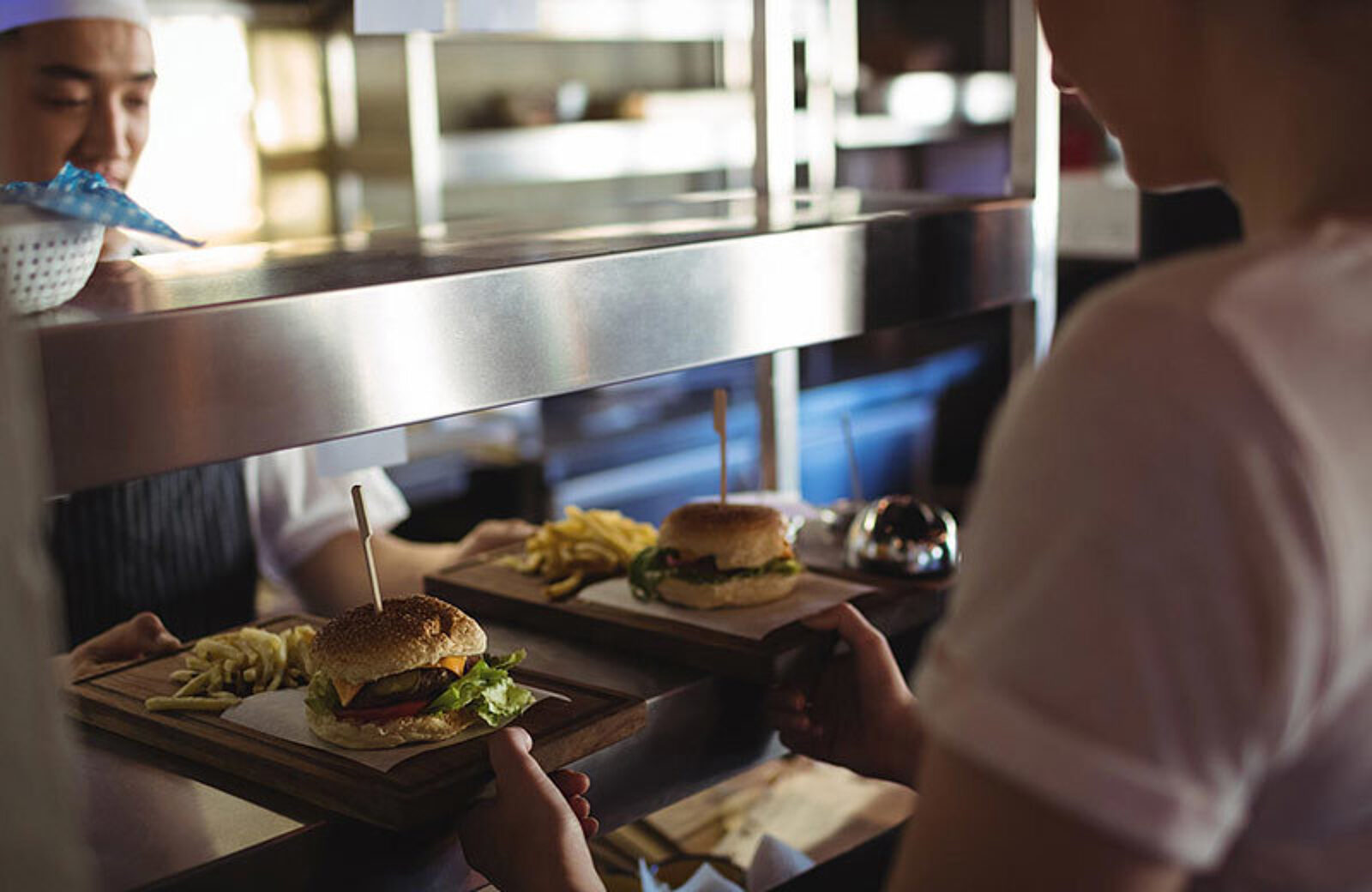
Suggestive Selling is All About Great Customer Service
When done right, suggestive selling feels less like sales and more like a great guest experience.

Tyler CumellaAuthor


Server Training Checklist
Use this comprehensive checklist to streamline your training process and cover all the essential tasks new servers should learn, from basic steps of service to side work.
Get free downloadRestaurant sales can be unpredictable. Certain establishments seem to always have lines down the block, but factors like time of year, competition, changing trends, and the economy can hit even the most successful restaurants.
For what can be such a fickle thing, who’d think that a tried-and-true technique like suggestive selling would still be such a surefire way to boost sales? Especially one rooted in the old industry adage: “Would you like fries with that?”
Suggestive selling really does work, though, which is why restaurants return to it time and time again as an easy way to increase average check size and get more out of every order.
What is Suggestive Selling?
Suggestive selling (also known as upselling) is the process of influencing guest purchases by enticing them with more expensive or higher margin items and add-ons.
Basically, it’s a sales strategy to see if your servers can convince your customers to add more to their order through suggestion. Suggestion is the operative word here, and it requires perception and mindfulness. How many times have you felt pestered by a server who continually blasts you with question after question, in an obvious attempt to get another few dollars out of you? It’s important that your employees avoid going overboard in their upselling, and maintain subtlety.
In order for the selling to be suggestive, you have to train your servers and front-of-house team to offer tailored, tech-driven options to guests, merging strong hospitality skills with data from your point of sale system and customer relationship management (CRM) technology.
So when training your servers, stay mindful of the three foundational recommendations for suggestive selling, outlined below. Because when done right, suggestive selling actually feels like excellent customer service, instead of a sleazy way to milk an extra buck.
Ryan Egozi is the director of operations at SuViche Hospitality Group and a firm believer that all suggestive selling should be based on the notion that staff are not upselling but rather enhancing the guest experience. He shared with us, “Suggestive selling can only be successful if what we are selling is a true enhancement, a true need. If we truly are satisfying our guests and giving them something they didn’t realize they wanted or needed, then we are succeeding. That’s the only determining factor — do right by the guest, be on the guest’s side. If we are doing this, we never ‘sell’ anything, and instead we build trust and loyalty.”
Suggestive selling can only be successful if what we are selling is a true enhancement, a true need.

Ryan Egozi
Director of Operations, SuViche Hospitality Group
Tailor Guest Suggestions
There are a few things that contribute to great tailored guest suggestions: attention to detail and the guest, extensive menu knowledge, and CRM technology-informed offerings.
Let’s say you’re a customer ordering from a burger joint. If the cashier gushes about how well the sweet potato fries pair with the caramelized onions on the gorgonzola burger, aren't you more likely to say yes to the upsell? That’s why your servers’ knowledge of the menu — from portion size to interplay of flavors to ingredients used to presentation — is necessary for them to effectively pull off suggestive selling.
Ryan has seen his fair share of positive and negative “suggestions.” He told us, “I can recall several instances where a server sold a guest a 32-ounce bone-in ribeye, when the guest really just wanted the simple 16-ounce boneless version. Servers were hell-bent on the upsell and extra tip money, and ultimately gave the guest something they didn’t want or need. Conversely, I’ve seen a server convince a guest to buy a bottle of wine that was more than double their price range, and the guest was elated. By that same token, I've seen the same server convince a guest to buy a cheaper wine because it made for a better pair. This resulted in a permanent regular — that guest ended up coming to visit us once a week instead of once a month — and instead of buying one $80 bottle, the guest bought three $40 bottles.”
A deep customer focus is key (more on that below), but your restaurant CRM technology can also be your servers’ best friend when it comes to suggestive selling. Integrating it with your POS system allows you to aggregate guest preferences, and offer a data-driven experience.
Essentially, it gives your servers a script. If they look at your CRM data to see what items are performing well, they might discover that your pinot grigio is commonly ordered alongside your pasta primavera. Now, they know what to recommend, and have reason to recommend it.
Server Training Checklist
Use this comprehensive checklist to streamline your training process and cover all the essential tasks new servers should learn, from basic steps of service to side work.

Remain Customer-Focused
According to the American Express 2017 Customer Service Barometer, more than half of Americans have scrapped a planned purchase or transaction because of bad service.
Stats like that go to show that you have to tread carefully when it comes to suggestive selling. Stay aware of your customer’s reaction to the experience. If they seem turned off, you’re probably coming across as a used car salesman, rather than an attentive server. Better to back off (and reconsider your approach for next time) than risk the entire sale.
This is where soft skills and hospitality skills — like warmth, self-awareness, and effective communication — come into play. Because at the end of the day, suggestive selling is secondary to making sure that a guest is enjoying their time at your restaurant. That’s why your servers need to go about selling as tactfully as possible. Gestures and behaviors like an upbeat attitude, smiling, good eye contact, and enthusiasm go a long way in showing the customer they care.
And when customers feel like your servers care and are working to provide them with the best experience possible, it makes suggestive selling that much easier.
Ryan shared some insight into how SuViche trains their team to upsell: “We teach our servers to pair items, read their guests, and truly understand the needs of each table to properly provide the dining enhancement. Sometimes, a simple smile is enhancement enough. Other times, guests want to purchase a bottle of blue label. Each guest is unique, each experience is unique, and we train and expect that our team understands these nuances and caters their approach to each guest.”
Running with that, here’s a quick example: Instead of your servers reciting menu specials in a very rehearsed way, have them ask the customer what they like. Do they like seafood? You have an amazing seared salmon on the menu tonight. Are they vegetarian? You have a whole section of the menu dedicated to vegetarian options. Asking thoughtful questions will actually teach them about the guest, and allow them to respond with relevant recommendations. And when customers feel like their personal preferences are actually being taken into account, they’re much more likely to go with your servers’ suggestions.
Take Advantage of Technology
Your restaurant technology and POS system can be an asset or a liability here. A modern technology stack including handheld POS devices with upselling built into the technology will allow your servers to spend more time with guests, and more opportunity to suggest add-ons, drinks, and sides.
But if your technology systems are slow or causing your servers to run back and forth across the restaurant (and lose valuable one-on-one time), you might end up with impatient and hangry (read: hungry and angry) guests. And an unhappy guest doesn’t want to hear about exciting new menu items, drink specials, or add-ons.
If your technology is able to keep up with your servers — and your servers are trained how to effectively use it — their suggestive selling skills will soar.
Training Manual Template
Use this restaurant training manual template, a customizable Word Doc, to provide your staff with the rules, guidelines, and clarity they need to do their jobs efficiently.

Is this article helpful?
DISCLAIMER: This information is provided for general informational purposes only, and publication does not constitute an endorsement. Toast does not warrant the accuracy or completeness of any information, text, graphics, links, or other items contained within this content. Toast does not guarantee you will achieve any specific results if you follow any advice herein. It may be advisable for you to consult with a professional such as a lawyer, accountant, or business advisor for advice specific to your situation.
Read More
Subscribe to On the Line
Sign up to get industry intel, advice, tools, and honest takes from real people tackling their restaurants’ greatest challenges.



